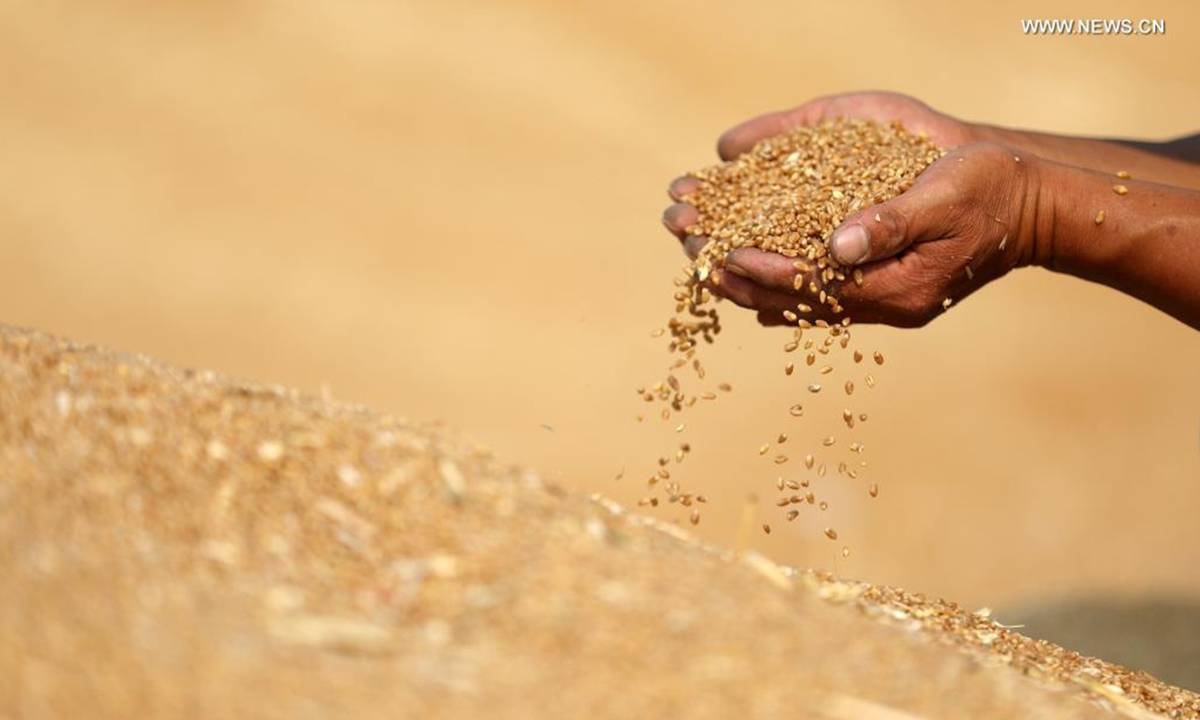The global food shortage has become the focus of international community lately. At the WTO ministerial meeting this week, WTO director-general Ngozi Okonjo-Iweala urged governments to stop food export restrictions to help ease an impending food crisis. But the question remains: Who is to blame for the food shortage? The creators of the crisis should rightly take the main responsibility for solving it.
Western public opinion has recently been blaming food export restrictions by some developing countries for causing food shortage, asking them to shoulder the responsibility for solving or alleviating the crisis. However, it is important to note that the current round of food supply crunch is mainly caused by the massive all-encompassing Western sanctions against Russia.
For instance, some Western media have deliberately placed the blame on India, which had to defend its wheat export restriction at a recent WTO meeting.
It is simply unfair to blame India's wheat export curb for the spike in global wheat prices (from $325 to $450 per ton), because the argument is clearly politically motivated, trying to justify those countries that created the crisis, and may mislead the WTO's direction to help solve the problem.
Traditionally, India is not a major wheat exporter, exporting only 500,000 tons per year. Last year India uncharacteristically exported 7.5 - 8 million tons of wheat, which accounted for 3 to 4 percent of the global food supplies. It can be said that India has also contributed to the balanced development of the global grain market.
It is true that some countries, such as India and Malaysia, have imposed controls on food exports recently, which may exacerbate the global food supply bottleneck. But this needs to be tackled jointly through the coordination of international organizations such as the WTO, but this should not diminish the leading responsibility the US and the developed economies must bear.
Russia is the world's leading food producer and one of the world's largest suppliers of fertilizers. The US and its allies are well aware of what the consequences of their sanctions on Moscow will cause.
It is Western economic sanctions, covering finance, energy, ocean shipping and more, that have significantly disrupted global food supply chain and led to the spike in food prices. Some international buyers concerned about the sanctions have avoided buying Russian products, causing a sharp decline in Russia's grain and fertilizer exports.
The US and its allies, which have been playing a major role in the global food trade system, have failed to offer a viable solution to the food crisis, but they are calling on the world, especially the developing countries, to help address or alleviate the food crisis. The developing countries, often with large populations, are bearing the brunt of soaring food prices. The global trade order is in serious jeopardy.
In fact, three of the four good giants that control up to 80 percent of global food trade are American. The US has the capability but lacks the will to tackle the food crisis.
And, the food shortage is only one aspect of the grim global economic outlook, which is inextricably linked to the US' abuse of its hegemonic position in the global financial and trade system.
Many now hope that a revival of multilateralism could help countries around the world deal with the current trade issues that are critical to the fate of the world economy. A major challenge to multilateralism is Washington's unilateralism and protectionism.
To solve many problems in the global economy, it is necessary for the US and its allies to reconsider the consequences of its sanctions policy, instead of putting the blame on others. Since the West has the ability to initiate sanctions, it should have the ability to address the negative problems that their sanctions have caused.




No comments yet
Be the first to share your thoughts!